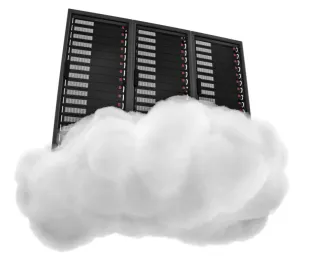On Aug. 9, 2019, the IRS issued proposed regulations (Proposed Regulations) addressing the U.S. federal income tax treatment of cross-border cloud transactions. The Proposed Regulations will not become effective until final rules are adopted.
By way of background, the last time the IRS meaningfully addressed the taxation of cross-border digital content transfers was in October 1998 (1998 Regulations), which applied to software transfers.
Technological developments over the last twenty years – specifically the advent of cloud computing and streaming content – rendered the 1998 Regulations outdated. The IRS stated that the purpose of the Proposed Regulations is to bring IRS regulations current with such technological advancements.
As explained more fully below, the Proposed Regulations cover, for the first time, transactions involving:
| • | Certain on-demand network-access transactions (Cloud Transactions) that include: |
| – | On-demand network access to “computing resources” such as software, networks, databases, servers, and other technological resources. Software-as-a-Service (SaaS), Platform-as-a-Service (PaaS) and Infrastructure-as-a-Service (IaaS) transactions fall into this category; |
|
| – | On-demand network access to “technological resources” such as streaming music and videos, transactions involving mobile development applications (apps), and access to data through remotely hosted software; and |
| • | The transfer of other digital content (Digital Content Transfers). The transfer of books, movies, and music in digital format for storage and use on a person’s computer or other electronic device falls into this category. |
We describe in more detail below what the Proposed Regulations cover.
Cloud Transactions. For purposes of the Internal Revenue Code (Code), the IRS views payments in connection with Cloud Transactions solely as either (i) payments for services, or (ii) lease payments.
Digital Content Transfers. For purposes of the Code, the IRS continues to view payments for the purchase of or the right to use software or other digital content (such as books, movies, and music in digital format) as either (i) a payment for a purchase of software or other digital content, (ii) a payment for a lease of a software item or other digital content (i.e., rental payment), (iii) a payment for a license of a software or other digital content (i.e., royalty), or (iv) a payment for services.
Sourcing Rules. The Proposed Regulations propose to change the U.S. “sourcing” rules that apply to Digital Content Transfers. Specifically, the Proposed Rules state that Digital Content Transfers should generally occur at the location of download or installation onto the end-user’s device used to access the digital content, as opposed to existing rules which state that the location where title transfers governs. The Proposed Regulations are silent on the sourcing rules that would apply to Cloud Transactions. However, the existing tax laws should be considered to determine the source of income based on whether a Cloud Transaction is classified as a provision of services or a lease of property.
Lease Versus Services Treatment in Cloud Transactions. The Proposed Regulations provide a non-exhaustive list of nine factors that weigh in favor of a Cloud Transaction being considered the provision of services rather than a lease of property:
| i. | there is no physical possession of the property by the customer; |
||
| ii. | the customer does not control the property beyond the customer’s network access; |
||
| iii. | the provider has the right to determine the specific property used in the Cloud Transaction and replace such property with comparable property; |
||
| iv. | the property is a component of an integrated operation in which the provider has other responsibilities; |
||
| v. | the customer does not have any significant economic or possessory interest in the property; |
||
| vi. | the provider bears any risk of substantially diminished receipts or substantially increased expenditures in the case of any nonperformance under the contract; |
||
| vii. | the provider uses the property concurrently to provide significant services to entities unrelated to the customer; |
||
| viii. | the provider’s fee is based primarily on a measure of the work performed or the level of the customer’s use rather than the mere passage of time; |
||
| ix. | the total contract price substantially exceeds the rental value of the property for the contract period. |
Consequences of Lease Versus Services Treatment of a Cloud Transaction. If a Cloud Transaction is treated as the provision of services, the income attributable to such services would be ordinary income and generally would be sourced to the location where the services are performed. If a Cloud Transaction is treated as a lease of property, the income attributable to such lease would be ordinary income and generally would be sourced to the location where such property is used.
The determination of where services are provided or property is used is difficult in the case of Cloud Transactions because of the global nature of cloud computing, i.e., the facilities, equipment, and personnel utilized in the provision of cloud computing, is global in nature, and not necessarily tied to the location of the parties.
Other Federal Income Tax Implications of the Proposed Regulations
If adopted, the Proposed Regulations will have significant tax implications on income arising from international Cloud Transactions and Digital Content Transfers. For example, the Proposed Regulations would affect:
| • | the determination of whether a payment from a U.S. customer (or a U.S. affiliate) to a non-U.S. digital content transferor or on-demand network-access provider (whether computing or non-computing) is subject to U.S. withholding tax; |
|
| • | the determination of whether a payment from a U.S. corporation to its non-U.S. cloud computing provider affiliate triggers adverse U.S. income tax consequences to the U.S. corporation under the new base erosion anti-abuse tax (BEAT) regime; |
|
| • | the U.S. tax treatment under the “controlled foreign corporation” (CFC) regime (including under the Subpart F rules and the new global intangible low-taxed income (GILTI) rules) of Cloud Transactions or Digital Content Transfers related income received by non-U.S. corporations that are controlled by U.S. companies or individuals; |
|
| • | the eligibility of U.S. corporations to benefit from the U.S. tax benefits under the new foreign-derived intangible income (FDII) regime with respect to income they derive from online sales, licenses, or services to non-U.S. customers for use outside the United States. |






 />i
/>i

